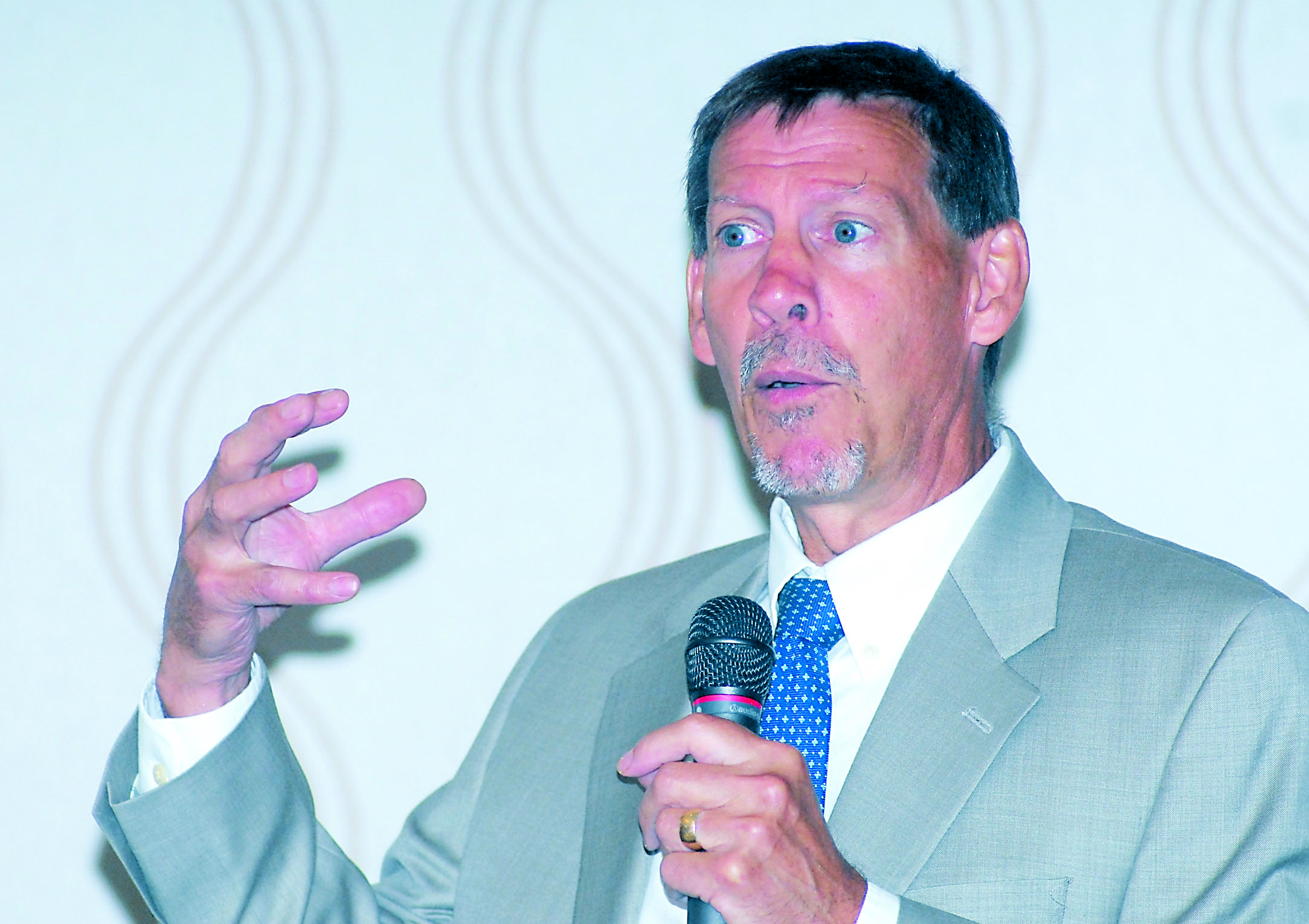PORT ANGELES — There is nothing official yet, but an announcement is expected in late August regarding Battelle’s involvement in the North Olympic Peninsula composites manufacturing, Charlie Brandt, director of the Pacific Northwest National Laboratory’s Marine Science Laboratory, told the Port Angeles Regional Chamber of Commerce on Monday.
“It looks very positive,” Brandt told an audience of about 50 meeting for the chamber’s weekly luncheon at the Red Lion Hotel.
Composites provide applications for marine services by providing light weight, corrosion-resistant materials for marine-based applications, and having local manufacturers allows immediate testing and deployments in nearby facilities, he said.
Brandt was on hand to provide some behind-the-fences insight into the marine lab on Sequim Bay, and the news of the impending announcement came during a question-and-answer portion of the event.
The lab, operated by Battelle Memorial Institute, is situated to take advantage of several unique features that make the North Olympic Peninsula perfect for the research it does, Brandt said.
The Marine Sciences Laboratory, located at 1529 W. Sequim Bay Road, has three main missions — to counter coastal security threats, to promote adaptations to climate change and population growth, and to enable sustainable energy production from coastal environments, he said.
Brandt explained that advantages to the Sequim location include being close to — but outside of — the West Coast’s busiest ship traffic lanes.
The site offers the Sequim Bay saltwater location with no major salmon-producing streams and now being on the new “Olympic Composites Corridor,” stretching from Port Angeles to Bremerton.
It also is near world-class wave and wind resources, which assists the lab’s research, he said.
Another advantage is Port Angeles’ deepwater port, which could be used to build and service wave- or wind-powered generators that are very large and need nearby service areas because they don’t fit on railroad cars, he said.
Brandt said one of the few challenges relating to the marine laboratory’s location on the Olympic Peninsula has been in recruiting, which pulls from an international pool of candidates.
“People want to live here but our biggest problem is the ‘trailing spouse,’” Brand said.
He explained that top-level scientists recruited are often married to other scientists who are generally not in a field that the laboratory needs, and there is no other local work for them.
However, it has not been a major hurdle for Battelle’s research teams as a whole, Brandt said.
“We don’t have to settle for second or third best,” he said.
________
Reporter Arwyn Rice can be reached at 360-452-2345, ext. 5070, or at arwyn.rice@peninsula
dailynews.com.

